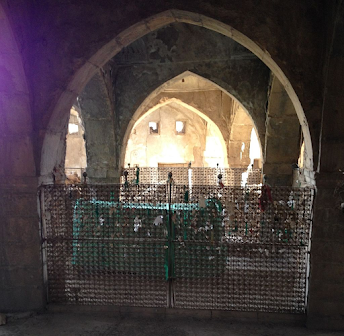Exciting News! + An article on idolatry in Kriat Yam Suf

So, very exciting news that I got just a last night - I was informed by the editors of the journal Megadim that my article has been accepted for publication. They just recommended a few small corrections. Once I send in the final draft they'll start preparing it for publication, presumably for the next volume (64). Don't remember if I've shared in the past, but I can sure share now that the article suggests a new interpretation for the difficultly-phrased verse in Melachim 2:15:25: " וַיִּקְשֹׁר עָלָיו פֶּקַח בֶּן רְמַלְיָהוּ שָׁלִישׁוֹ וַיַּכֵּהוּ בְשֹׁמְרוֹן בְּאַרְמוֹן בֵּית מלך [הַמֶּלֶךְ] אֶת אַרְגֹּב וְאֶת הָאַרְיֵה וְעִמּוֹ חֲמִשִּׁים אִישׁ מִבְּנֵי גִלְעָדִים וַיְמִיתֵהוּ וַיִּמְלֹךְ תַּחְתָּיו." "His aide, Pekah son of Remaliah, conspired against him and struck him down in the royal palace in Samaria; with (?) Argob and the Arieh, and with him were fifty Gileadites; and he killed him and succeeded him as king. The verse describes the assassination ...




